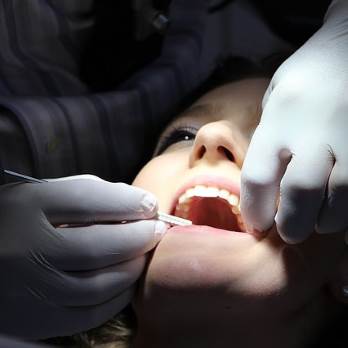How Much Will Dental Implants Cost You in Australia in 2025?
Did you know dental implants in Australia can last decades with over a 90% success rate? Learn the true costs and smart financing tips to make your smile restoration both high-quality and budget-friendly, ensuring long-term satisfaction and confidence.

What is the pricing overview for dental implants in Australia in 2025?
As we approach 2025, the cost of dental implants in Australia is expected to remain a significant investment in one’s oral health. While exact prices can vary widely depending on individual circumstances, general estimates suggest that a single dental implant could range from $3,000 to $6,500. For more complex cases involving multiple implants or full-mouth restorations, costs could escalate to $15,000 - $30,000 or more.
It’s important to note that these figures are projections based on current trends and may be subject to change due to various economic factors and advancements in dental technology. However, they provide a general guideline for those considering dental implants in the near future.
What factors affect the cost of dental implants?
Several key factors contribute to the overall cost of dental implants:
-
Number of implants required: Single tooth replacements will naturally cost less than full-arch restorations.
-
Complexity of the case: Patients requiring bone grafts or sinus lifts will face higher costs due to additional procedures.
-
Materials used: High-quality, biocompatible materials tend to be more expensive but offer better longevity and integration.
-
Dentist’s expertise: Highly skilled and experienced implantologists may charge more for their services.
-
Location: Dental practices in major cities or affluent areas often have higher overheads, which can affect pricing.
-
Additional treatments: Costs for extractions, temporary prosthetics, or other preparatory work may add to the total expense.
Understanding these factors can help you better anticipate and plan for the potential costs associated with your dental implant treatment.
What is typically included in dental implant pricing?
When considering the cost of dental implants, it’s crucial to understand what is generally included in the quoted price. A comprehensive dental implant treatment typically encompasses:
-
Initial consultation and treatment planning
-
Pre-procedure imaging (X-rays, CT scans)
-
The implant surgery itself
-
The dental implant (titanium post)
-
The abutment (connector between implant and crown)
-
The final prosthetic (crown, bridge, or denture)
-
Follow-up appointments and adjustments
Some dental practices may offer package deals that include all of these components, while others might itemize each part of the treatment. Always clarify with your dental provider what is included in their quoted price to avoid any unexpected costs.
How do dental implant costs in Australia compare with overseas options?
In recent years, dental tourism has gained popularity among Australians seeking more affordable implant options. Countries like Thailand, Mexico, and Hungary often offer dental implant procedures at significantly lower prices, sometimes 50-70% less than Australian rates. However, it’s crucial to consider several factors when comparing local and overseas options:
-
Quality of care and materials
-
Potential travel and accommodation costs
-
Follow-up care and warranty coverage
-
Risks associated with medical procedures abroad
-
Time off work and recovery in a foreign country
While overseas options may seem attractive from a cost perspective, the potential risks and inconveniences should be carefully weighed against the benefits of receiving treatment in Australia, where dental standards are among the highest in the world.
What financing choices are available for dental implant treatment in 2025?
As dental implants continue to be a significant investment, various financing options are expected to be available in 2025 to help make treatment more accessible:
-
Payment plans: Many dental practices offer interest-free payment plans, allowing you to spread the cost over several months or years.
-
Health fund coverage: Some private health insurance providers may offer partial coverage for dental implants, especially if they’re deemed medically necessary.
-
Superannuation early release: In certain circumstances, you may be able to access your superannuation to pay for dental implant treatment.
-
Medical credit cards: Specialized credit cards for healthcare expenses often offer interest-free periods for dental treatments.
-
Personal loans: Traditional personal loans can be used to finance dental implants, though interest rates should be carefully considered.
It’s advisable to discuss these options with your dental provider and financial advisor to determine the best approach for your situation.
Which dental implant providers offer competitive pricing in Australia?
To help you make an informed decision, we’ve compiled a comparison of some dental implant providers in Australia. Please note that these prices are estimates and may vary based on individual cases and locations.
| Provider | Single Implant Cost Estimate | Full Arch Restoration Estimate | Key Features |
|---|---|---|---|
| Smile Solutions | $4,500 - $6,000 | $20,000 - $30,000 | All-in-one dental centre, experienced implantologists |
| National Dental Care | $3,800 - $5,500 | $18,000 - $25,000 | Multiple locations across Australia, flexible payment plans |
| Dental Implant Professionals | $4,000 - $5,800 | $19,000 - $28,000 | Specializes in implants, offers 3D planning technology |
| Australian Dental Association Clinics | $3,500 - $5,200 | $17,000 - $24,000 | ADA accredited, adherence to strict quality standards |
Prices, rates, or cost estimates mentioned in this article are based on the latest available information but may change over time. Independent research is advised before making financial decisions.
In conclusion, while dental implants in Australia in 2025 are projected to remain a significant investment, they offer a long-lasting solution for tooth replacement with high success rates. By understanding the factors that influence costs, exploring financing options, and comparing providers, you can make an informed decision about your dental health. Remember to consult with qualified dental professionals to determine the best treatment plan for your specific needs and budget.
This article is for informational purposes only and should not be considered medical advice. Please consult a qualified healthcare professional for personalized guidance and treatment.




